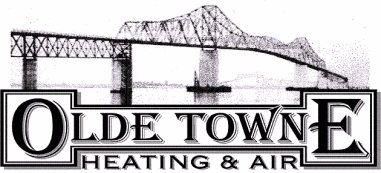
To combat increasing energy expenses and embrace sustainability, many homeowners are trying new methods to maintain comfort levels while using less energy. As part of the Inflation Reduction Act, federal tax credits are available for energy-efficient home upgrades, especially HVAC systems like air conditioners. These credits offer a big chunk of the installation costs, as long as the homeowners use qualifying equipment and submit the right paperwork.
If you’re concerned the application process might be tedious, we can share something that will help! Olde Towne Heating & Air hopes this guide will provide all the information necessary to take full advantage of HVAC tax credits this year. Here’s what you’ll need to do.
Understanding the HVAC Tax Credits
These valuable tax credits for energy-efficient home improvements are just one small part of the recent Inflation Reduction Act. With the higher cost of energy making an impact, helping more homeowners upgrade their equipment is always beneficial. The main intention of these credits is to mitigate costs associated with installation and renovation projects. The two we’ll cover are the Residential Clean Energy Credit and the Energy Efficiency Home Improvement Credit.
But remember, to claim your credits, you’ll need to fill out IRS Form 5695. Additionally, this form has to be submitted during the same tax year any upgrades were installed, not purchased.
Maximizing Savings with the Energy Efficiency Home Improvement Credit
Through 2032, the Energy Efficiency Home Improvement Credit provides up to $3,200 each year for making your home more energy-efficient. This can be up to 30% of the total project’s cost. Keep in mind that in order to receive the maximum amount, you’ll have to make several investments. For example, you’ll get up to $2,000 for high efficiency heat pump systems. This can be paired with an additional $1,200 in credits for more projects in the tax year.
While new heat pump installation projects are a key target for this incentive, other HVAC upgrades like efficient furnaces and air conditioners also qualify. You should confirm the make and model’s energy efficiency rating is sufficient to qualify.
Residential Clean Energy Credit
The Residential Clean Energy Credit provides 30% savings on a number of other residential clean energy equipment upgrades. Eligibility is restricted to homeowners seeking to update existing or newly constructed homes. While the Home Improvement Credit highlights utilities and HVAC systems, this credit is instead designed around renewable energy sources like solar and wind energy.
Some provisions of the tax credit include the requirement that installation must occur between 2022 and 2032. But at the same time, homeowners can keep the excess credit to reduce future taxes. This is a great way to make things a little easier when investing in renewables.
What Else Is Eligible for These Tax Credits?
Because HVAC systems are one of the biggest expenses on your energy bill, these tax credits can guide you to the most energy-efficient options. But home energy efficiency can be improved in many other ways. Apart from the previously listed HVAC upgrades, {you could also choose|other eligible items include|you also have access to:
- Energy-saving heat pump water heating systems
- Modern electrical panel improvements
- Upgraded electrical wiring
- Insulation, air sealing and ventilation enhancements
- High-efficiency electric stoves, cooktops, ranges or ovens
- Efficient heat pump clothes drying solutions
- High-efficiency water boilers
Just like with installing one or more HVAC systems, you’ll need to confirm that your chosen products meet the required energy efficiency ratings.
Three Tips for Making the Most of 2024 HVAC Tax Credits
While any of these upgrades can improve your home’s energy efficiency, a little planning will ensure the best chance at more long-term benefits. Maximize your HVAC tax credits with the following three tips:
- Perform an energy audit to pinpoint valuable enhancements. Rely on professional HVAC assessments for crucial advice.
- Enhance your home's envelope by addressing inefficient windows and doors.
- Explore potential rebates from utility companies for clean energy upgrades. Renewable sources like solar, wind, and geothermal contribute to community power grid sustainability.
- Don’t forget financing options from local service companies, which can help reduce costs even more.
Secure Your 2024 HVAC Credits with Help from Olde Towne Heating & Air
Partner with local HVAC professionals like Olde Towne Heating & Air for help with home energy audits and new installation projects. Our helpful installers will deliver everything you need for home energy efficiency upgrades.
